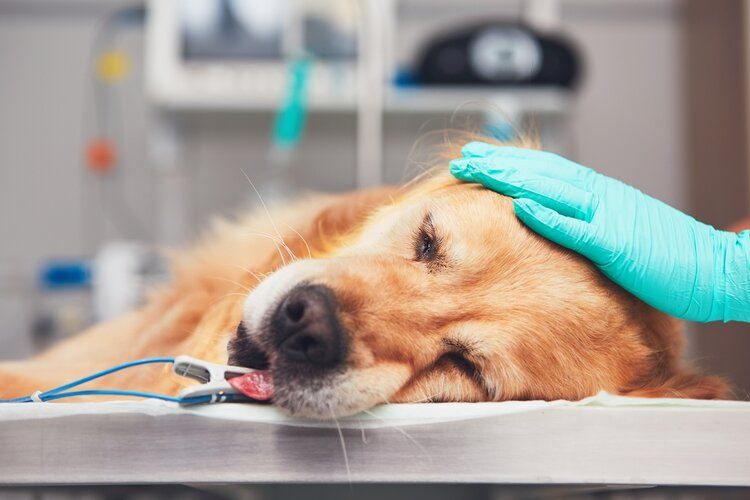Making Your Dog Vomit for Aluminum Ingestion
Never attempt to make your dog sick at home after eating something they shouldn’t unless told to do so by a veterinarian. This decision should only be made by a veterinary professional for a number of reasons. Depending on what your dog has eaten, making them vomit could cause more damage (if an object is sharp such as metal, or irritant to the gut like many household chemicals) or could make them ill in other ways. If the vet feels that they need to make your dog vomit, they can give an injection to help, which is a far safer way of inducing vomiting than many home methods.

What Should You Do If Your Dog Eats Aluminum Foil?
You’ll want to take aluminum foil ingestion seriously, but it needn’t cause you to panic. Most dogs will pass aluminum foil naturally, and it rarely causes severe health problems. Just follow the steps below if you discover that your four-footer has potentially eaten some foil.
1. Start by assessing your dog’s behavior and apparent health. Is he acting normally, or is he exhibiting signs of pain, disorientation, or discomfort?
As long as your dog is acting normally, you can just keep moving down the list. But if he shows signs of pain or distress, you’ll want to go ahead and head over to the vet.
2. Try to recreate the scene of the crime. You need to get an idea of how much aluminum foil your dog consumed, as well as what the aluminum foil may have contained. So, start collecting the pieces left on the ground and dig through your trash can to see how much is left inside.
Did he eat the wrapping from a few Hershey’s Kisses or several feet of aluminum foil used to wrap up what was left of your Thanksgiving Turkey?

Keep moving down the list if the quantity involved was minor, but if your dog ate a substantial amount of foil, give your vet a call.
3. Monitor your dog (and his poops) for the next several days. Typically, any aluminum foil your dog eats will pop out the other end easily enough. You may not always see it in his poop, but it is a good idea to take a look anyway.
If he continues to eat, drink, poop, and behave normally, he’s probably fine. However, if he exhibits any serious symptoms, you’ll want to take him in for a veterinary examination.
Don’t have easy access to a vet? You may want to consider getting help from JustAnswer — a service that provides instant virtual-chat access to a certified vet online.
You can discuss the issue with them, and even share video or photos if need be. The online vet can help you determine what your next steps should be.
While talking with your own vet — who understands the ins and outs of your dog’s history — is probably ideal, JustAnswer is a good backup option.
What Should I Do If My Dog Ate Aluminum Foil?
Witnessing your dog eat aluminum foil or other non-food items can be extremely alarming.
If you just saw your dog eat a piece of foil, remember that aluminum foil isn’t toxic or poisonous to dogs. So remain calm and keep a constant eye on your dog.
See if your dog is coughing or panicking because they could be choking on the piece of foil. If so, try to dislodge the aluminum foil by performing the Heimlich maneuver, calling an animal emergency hotline, or immediately taking them to the vet.
But if your dog seems to be stable and breathing, continue reading the article to learn what to do next.

Dog eats tin foil – you won’t believe the end!
Some things might not seem that dangerous, butseeing your dogswallow a piece of aluminum foil can scare the heckout of anybody!
So what should you do after your dog eats aluminum foil? Firstly, remain calm. Aluminum is not toxic to dogs and is not dangerous in small quantities. Assess your dog for signs of choking. If they seem okay, carefully monitor them for the next few days. Most dogs will poop out the foil but call their vet immediately if they cannot poo.
But how should you monitor your dog’s condition? And how do you recognize if the aluminum is causing any trouble in your dog’s digestive system?